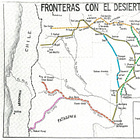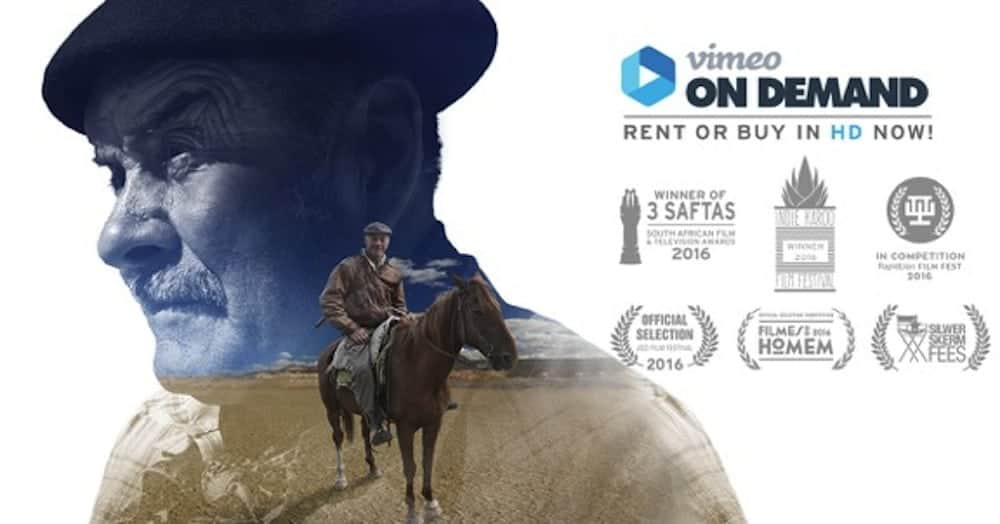Welcome Avatar! At the beginning of the 20th century after the Boer War in 1902, Boer settlers arrived in Comodoro Rivadavia, Argentina, looking for freedom. This is the story of one of the least known communities among all those that emigrated to Argentina, still present and speaking Afrikaans up to this day.
The official policy of Argentina since 1860 was to encourage the settlement of European immigrants. This policy was especially strengthened after 1880, once the military campaign of Julio A. Roca had ended.
It was then that the Law of National Territories and in 1884 the Ley del Hogar were passed to encourage the settlement of European migrants. With these laws, the Argentine Government granted small plots of land for agricultural exploitation, in addition to guaranteeing them freedom of religion and association.

Within the framework of the promotion of European immigration, the Minister of Agriculture, Wenceslao Escalante, became interested in the colonization of Patagonia, taking into account the precedent of the establishment of Welsh colonies in the valley of the Chubut territory.
Given the relative success of the Welsh colonies, groups with strong community ties were sought, considering that these ties would compensate for the lack of economic infrastructure.
Read more about Roca’s Desert Campaign to incorporate the Patagonian territories into Argentina in this article:
From Transvaal to Chubut
In South Africa, the Boers (a name derived from Dutch/Afrikaans which means “farmers”) came into conflict with British colonizers and were defeated in 1902.
This conflict is known as the Boer War, in which people of the like of Winston Churchill and Mahatma Gandhi fought on the side of the British army against the two Boer republics (the South African Republic and Orange Free State).
Autist note: if you’re interested in reading about this war, “The Boer War” by Martin Bossenbroek is highly recommended. It is nothing short of fascinating what the Boers pulled off for as long as they did against the dominant Empire of that time.
At the end of the war, many of the Boers were determined not to accept British rule, and sought to settle in other parts of the world, including Argentina.
Around 650 families arrived between 1902 and 1907, settling in Patagonia after Roca’s “Conquest of the Desert.”
The vast majority of the settlers were white, but some black South Africans also arrived in dire working conditions, an echo of the experiences of other Africans in the Río de la Plata.

The first Boers in Comodoro Rivadavia
At the end of 1901 before the end of the Second Boer War, the Argentine consulate in Cape Town actively promoted the migration for these groups, as well as offering the possibility of developing sheep farming in the province of Chubut.
The Minister of Agriculture at that time, Wenceslao Escalante, estimated that the Patagonian plateau had many geographical similarities with the area occupied by the Boers in South Africa, which would make it easier for them to adapt to this area of Argentina. The government offered them an area of 150,000 hectares, which were subdivided into lots.
The first contingent arrived in Comodoro Rivadavia, which at that time was just a settlement with roughly thirty inhabitants. The province of Chubut was a wasteland, a remote place far from the bigger cities.
The migration process of the Boer community in Chubut is characterized by a planned migration of family groups that arrived in three waves. The first group arrived in 1902 and consisted of a few families. The other two contingents arrived in 1903 and 1904, respectively, after the Second Boer War had already ended.
Colonia Escalante
The first settlement of the Boers took place in Colonia Escalante, where they dedicated themselves to the breeding of sheep and cattle, as well as building roads and working the land of the area.
From the beginning, Colonia Escalante was characterized by being a differentiated population center, which tried to maintain its language, religion and customs. In this sense, the group's marriage patterns were markedly endogamous, which is evident in the kinship ties that many families still maintain today.

The Boers considered that the education of children was fundamental, which was a concern from the beginning of the colony. They formed rural schools that operated in the same estancias.
In addition to the educational content, different religious practices were also developed. Many of the first settlers served as teachers at the beginning, once they had a stable pastor, it was he who educated them.
Boers Strike Black Gold
The Chubut region of Patagonia is very desert-like (similar to the Gobi desert), and the Boers were also the ones who promoted the first drillings to extract water for Comodoro Rivadavia and its surroundings.
Thanks to those first requests to the National Government to bring the drilling machines, oil was discovered in 1907.
The Chubut province has been prosperous ever since, but unfortunately for the Afrikaners, mineral rights in Argentina belong to the province, so they never profited from the discovery.
Even today, the water captured by YPF in 1912 supplies the population of Comodoro Rivadavia and its surroundings. Since then, and in honor of its first settler, it is called "Manantiales Behr."
The Boers were also very religious and fervent believers. In some way, arriving in Patagonia was arriving at "the promised land." Those first settlers who arrived in Chubut were Calvinists, but they were divided into two groups: the Dutch Reformed and the simply Reformed, both of Dutch origin, but with small variations.
Autist note: the 2016 documentary The Boers at the End of the World (Boere op die Aardsdrempel) is highly recommended if you are more interested in this history. It’s just $3 usd to rent on Vimeo, where I watched it.
Fascinating to see this community still speak Afrikaans after more than a century - as a native Dutch speaker it is always crazy that it is so relatively easy to understand about 70-80% of it.
La Asociación Colectividad Sudafricana del Chubut
In 1992, the Association of the South African Community of Chubut was founded, which aims to preserve, spread and promote its Afrikaans culture, traditions and language.
The history of the Boers of Chubut is so unique that it even sparked the interest of linguists from the University of Michigan in the USA, who carried out a study on the use of Afrikaans in the community.
According to this study, the dialect preserves elements of Afrikaans from before 1925, when the South African government recognised it as an official language. In recent years, there has been an interest in promoting the cultural heritage of the Boers in Chubut, one example being the creation of a cultural centre and museum in the seaside town of Rada Tilly, which was created by members of the local community.
After 119 years since the arrival of the Boers in Chubut, the community continues to exist, as does its legacy.
Final Thoughts
The history of the Boers represents an example of Argentina's cultural diversity and melting pot of races. Like millions of immigrants, the Boers left their homeland to start a new life.
Now that more than a century has passed, the Boer community in Chubut has lost many of its members. A large number returned to South Africa over time, while others died. However, those who stayed continued to maintain many of their customs, as well as the Afrikaans language.
Today, the Boer community in Chubut makes up around 30-40 people, with more than half still bilingual in Afrikaans and Spanish. Their culture and customs are kept alive through sports events, a museum and regular encounters.
On the other end of the pond in South Africa, the number of farmers of European descent in South Africa had decreased by more than one third since 1997, with news headlines about farm killings providing incentive for them to sell their properties. That trend has continued ever since, and the headlines continue, month after month.
From 2010 to the end of August 2023, recorded farm attacks (4,308) and farm murders (806) have been a constant threat, with at least 4 to 5 murders per month, with Boer farmers being the main target.
As we see things in South Africa increasingly heating up with the likes of left-wing EFF candidate Julius Malema chanting “Kill the Boer, kill the farmer”, Argentina looks like a great option for freedom seeking Boers once again.
See you in the Jungle, anon!
Other ways to get in touch:
X/Twitter: definitely most active here, you can also find me on Instagram but I hardly use that account.
1x1 Consultations: book a 1x1 consultation for more information about obtaining residency, citizenship or investing in Argentina here.
Podcasts: You can find previous appearances on podcasts etc here.
WiFi Agency: My other (paid) blog on how to start a digital agency from A to Z.












Fascinating. This was the best move those families ever made, in retrospect.
My Dad and grandmother were born in Chibut. My Dad came back with his parents when he was six years old. Today my husband and son and daughter do the Asado on an asador with salmoira!